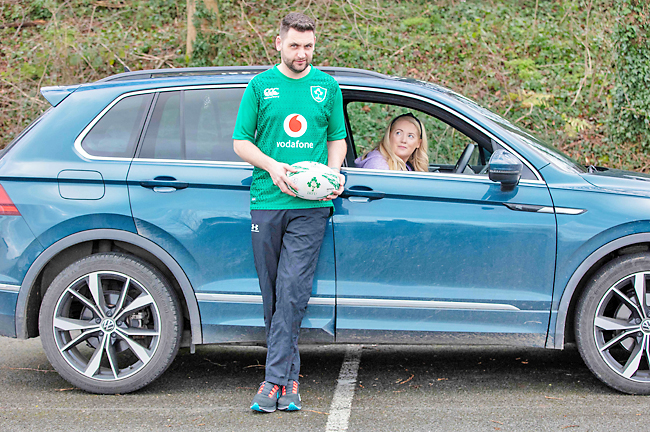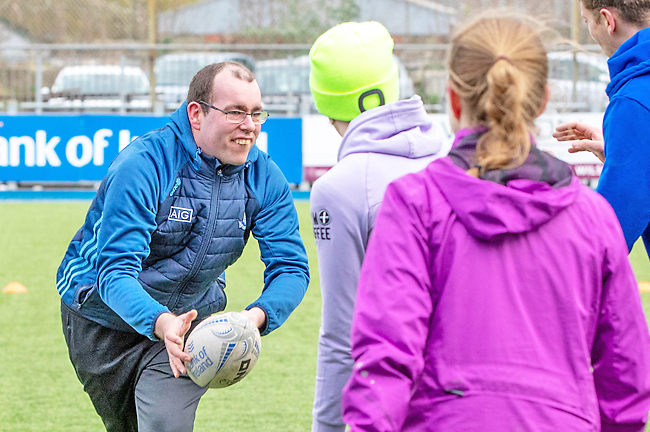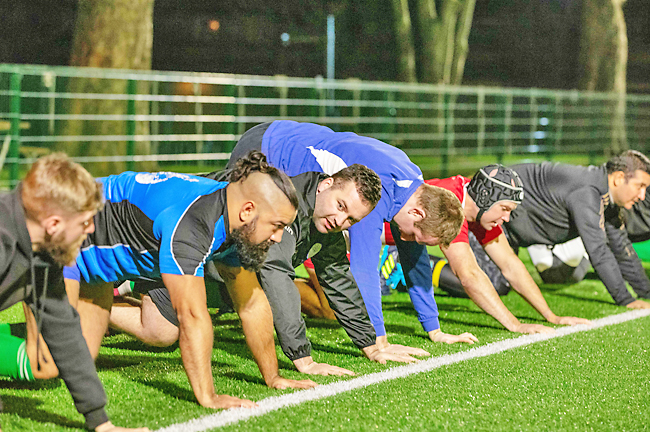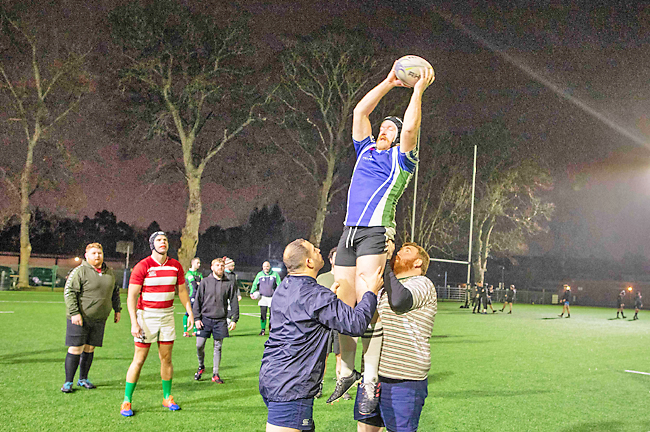DUBLIN (AFP) – When Sean McDowell lost his sight two years ago, his self-confidence plummeted – until his life was transformed by rugby.
The sport gave McDowell a “new beginning” after he joined the Irish Rugby Football Union’s Visually Impaired (VI) rugby programme, his wife Aine told AFP.
The programme came into being last year with former Italy fly-half Ian McKinley playing a prominent role – based on his own experience. McKinley overcame the odds to play Test rugby having lost the sight in his left eye but thanks to special goggles enjoyed a renaissance in his career in Italy.
The 32-year-old said rugby fits like a glove with such a programme. “The key buzzwords in rugby of inclusion and connection just falls straight into it,” he said from his home in Northern Ireland.
“It’s nice to be able to help out and provide something in a sport that gave me so much and can give those people a lot too.”
McDowell suffered a brain injury in 2020 and lost his sight – and with it, his self-confidence.
However, he rediscovered a certain vim after Aine drove him the two hours from their home in Northern Ireland to the Dublin rugby club Old Wesley. “There has been a massive change in Sean,” Aine told AFP.




“The main thing is his confidence grew and grew in everything. It has made him more outgoing knowing he can try new things. He is a lot more confident in himself and putting himself out there meeting new people. It is a new beginning.”
Sean admitted that although he followed the Ireland rugby team, he preferred to play football and Gaelic Games. However, the programme – overseen by David McKay, the IRFU’s Disability and Inclusion Officer – stood out when he heard about.
“After the first day even though it is a couple of hours each way I made the decision I wanted to be going back to every session,” he told AFP.
“The drive is not a big deal given the enjoyment I get out of it. The coaches made me feel at ease right from the start. I was not great with my feet, I was a bit unstable but they worked with me and it has just got better.”
VI Rugby is based around the Rugby Sevens touch format. It takes into consideration a wide range of sight conditions while maintaining the fundamental codes, laws, and spectacle of rugby for both players and spectators.
The players wear numbers on their bibs – so they can be identified when running with the ball – aided by guides and use a ball with ball bearings in it.
McKinley had actually started the ball rolling in Italy with plans for a VI programme which quickly became booked up, but then the COVID-19 pandemic struck and it had to be put on hold. However, he jumped at the chance to help create a similar programme in Ireland when he received an email from McKay asking him if he was interested.
For McKinley it has also been a voyage of discovery from a coaching point of view when he has dropped in on one of the sessions attended by 15 regulars. “It enthralled me actually when I was doing a training session,” he said.
“Coaching is really interesting and different to how I had been coached as you are obliged to explain things clearly and specifically.”
For McKinley the old saying from acorns do oaks grow is true of the progress he wants to see from VI rugby. “I am not going to shy away, it would be terrific to have a Six Nations tournament in the future,” he said.
“My wife and I went to Turin to watch the mixed ability team play and it was one of the most exhilarating and humbling experiences of our lives. To watch a team of different disabilities performing for a common goal brought rugby into a different light.
“For me it may sound really cheesy but those were heroes partaking. So if they can do it, there is no reason why this can’t get going.”


